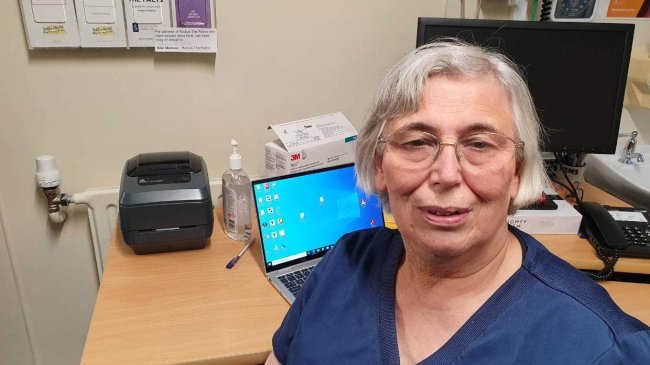Respiratory physician Lutz Beckert considers chronic obstructive pulmonary disease management, including the prevention of COPD, the importance of smoking cessation and pulmonary rehabilitation, and the lifesaving potential of addressing treatable traits. He also discusses the logic of inhaler therapy, moving from single therapy to dual and triple therapy when indicated, as well as other aspects of management
Experts call for review of the sexual health service
Experts call for review of the sexual health service

A nationwide review of the sexual health service is vital to making sexual healthcare accessible after the “disaster” review eight years ago, experts are saying.
The 2014 review of the Auckland sexual health regional service resulted in staff and resources being cut and primary care becoming the first port of call for all sexual health needs.
“The 2014 review was a perfect case study of what not to do – it was a disaster,” says Massimo Giola, president of the Australasian Chapter of Sexual Health Medicine at the Royal Australasian College of Physicians. Dr Giola says there has been a 500 per cent increase in referrals from primary to secondary care since the review.
A report in the New Zealand Medical Journal on Friday, by Te Whatu Ora Toku Tumai sexual health physician Sunita Azariah, compares three Auckland districts (former DHBs) in relation to how each provides sexual healthcare.
It finds large inequities in access to the sexual health service for people living in Counties Manukau district, with disproportionate numbers young people, Māori and Pacific people, and men who have sex with men, which are groups considered to be a sexual health priority.
A new review is needed to first assess the needs of the community, and then resource it adequately, Dr Giola says.
President of the New Zealand Sexual Health Society Anne Robertson says strong referral guidelines and a better-resourced specialist system would alleviate pressure on both primary and secondary care.
Dr Robertson says sexual health is often wrongly considered simple to manage and easily cared for in primary care.
The current model's confused and patchy referral system means patients are not seeing specialists when they need to be, resulting in further spread of STIs, the sexual health clinician says.
When syphilis is not managed in the community correctly, there tend to be higher levels of congenital syphilis, which further deepens the inequity, she says.
Dr Giola says plenty of sexual healthcare, such as STI swabs and condom promotion, is best delivered in primary care. But primary care doesn’t have the resources for all sexual healthcare, particularly with the rise of complex STIs, and increased use and access to HIV Pre-Exposure Prophylaxis medication and gender-affirming care.
Syphilis and gonorrhoea cases have increased and are best managed in specialist care, he says.
Another barrier to accessing sexual healthcare within primary care is that not everyone is comfortable with receiving this care from their GP, Dr Giola says.
Up to 50 per cent of gay, bisexual and other men who have sex with men have not disclosed their sexuality to their GP.
Dr Giola says the health system must take responsibility for providing free and safe specialist care in ways that work for the populations disproportionately affected by STIs.
He hopes a new review would recommend more of a balance between primary and secondary care to best provide for these communities at higher risk – including men who have sex with men, Pacific and Māori people, and young people.
“[Sexual health specialists] highly value the work that GPs provide in a sexual health context. And we know that GPs value the work of specialists – it’s an important relationship.”
Dr Giola says an improved model would be a national clinical network for clinicians with regional divisions, clear pathways for primary care to receive support for complex patients and a good referral system.
Time for another review: following implementation of a new service model for Auckland Sexual Health service there has been an increase in referrals, case complexity and clinical workload but regional inequities in access remain – New Zealand Medical Journal








![Barbara Fountain, editor of New Zealand Doctor Rata Aotearoa, and Paul Hutchison, GP and senior medical clinician at Tāmaki Health [Image: Simon Maude]](/sites/default/files/styles/thumbnail_cropped_100/public/2025-03/Barbara%20Fountain%2C%20editor%20of%20New%20Zealand%20Doctor%20Rata%20Aotearoa%2C%20and%20Paul%20Hutchison%2C%20GP%20and%20senior%20medical%20clinician%20at%20T%C4%81maki%20Health%20CR%20Simon%20Maude.jpg?itok=-HbQ1EYA)
![Lori Peters, NP and advanced health improvement practitioner at Mahitahi Hauora, and Jasper Nacilla, NP at The Terrace Medical Centre in Wellington [Image: Simon Maude]](/sites/default/files/styles/thumbnail_cropped_100/public/2025-03/2.%20Lori%20Peters%2C%20NP%20and%20advanced%20HIP%20at%20Mahitahi%20Hauora%2C%20and%20Jasper%20Nacilla%2C%20NP%20at%20The%20Terrace%20Medical%20Centre%20in%20Wellington%20CR%20Simon%20Maude.jpg?itok=sUfbsSF1)
![Ministry of Social Development health and disability coordinator Liz Williams, regional health advisors Mary Mojel and Larah Takarangi, and health and disability coordinators Rebecca Staunton and Myint Than Htut [Image: Simon Maude]](/sites/default/files/styles/thumbnail_cropped_100/public/2025-03/3.%20Ministry%20of%20Social%20Development%27s%20Liz%20Williams%2C%20Mary%20Mojel%2C%20Larah%20Takarangi%2C%20Rebecca%20Staunton%20and%20Myint%20Than%20Htut%20CR%20Simon%20Maude.jpg?itok=9ceOujzC)
![Locum GP Helen Fisher, with Te Kuiti Medical Centre NP Bridget Woodney [Image: Simon Maude]](/sites/default/files/styles/thumbnail_cropped_100/public/2025-03/4.%20Locum%20GP%20Helen%20Fisher%2C%20with%20Te%20Kuiti%20Medical%20Centre%20NP%20Bridget%20Woodney%20CR%20Simon%20Maude.jpg?itok=TJeODetm)
![Ruby Faulkner, GPEP2, with David Small, GPEP3 from The Doctors Greenmeadows in Napier [Image: Simon Maude]](/sites/default/files/styles/thumbnail_cropped_100/public/2025-03/5.%20Ruby%20Faulkner%2C%20GPEP2%2C%20with%20David%20Small%2C%20GPEP3%20from%20The%20Doctors%20Greenmeadows%20in%20Napier%20CR%20Simon%20Maude.jpg?itok=B0u4wsIs)
![Rochelle Langton and Libby Thomas, marketing advisors at the Medical Protection Society [Image: Simon Maude]](/sites/default/files/styles/thumbnail_cropped_100/public/2025-03/6.%20Rochelle%20Langton%20and%20Libby%20Thomas%2C%20marketing%20advisors%20at%20the%20Medical%20Protection%20Society%20CR%20Simon%20Maude.jpg?itok=r52_Cf74)
![Specialist GP Lucy Gibberd, medical advisor at MPS, and Zara Bolam, urgent-care specialist at The Nest Health Centre in Inglewood [Image: Simon Maude]](/sites/default/files/styles/thumbnail_cropped_100/public/2025-03/7.%20Specialist%20GP%20Lucy%20Gibberd%2C%20medical%20advisor%20at%20MPS%2C%20and%20Zara%20Bolam%2C%20urgent-care%20specialist%20at%20The%20Nest%20Health%20Centre%20in%20Inglewood%20CR%20Simon%20Maude.jpg?itok=z8eVoBU3)
![Olivia Blackmore and Trudee Sharp, NPs at Gore Health Centre, and Gaylene Hastie, NP at Queenstown Medical Centre [Image: Simon Maude]](/sites/default/files/styles/thumbnail_cropped_100/public/2025-03/8.%20Olivia%20Blackmore%20and%20Trudee%20Sharp%2C%20NPs%20at%20Gore%20Health%20Centre%2C%20and%20Gaylene%20Hastie%2C%20NP%20at%20Queenstown%20Medical%20Centre%20CR%20Simon%20Maude.jpg?itok=Z6u9d0XH)
![Mary Toloa, specialist GP at Porirua and Union Community Health Service in Wellington, Mara Coler, clinical pharmacist at Tū Ora Compass Health, and Bhavna Mistry, specialist GP at Porirua and Union Community Health Service [Image: Simon Maude]](/sites/default/files/styles/thumbnail_cropped_100/public/2025-03/9.%20Mary%20Toloa%2C%20Porirua%20and%20Union%20Community%20Health%20Service%20in%20Wellington%2C%20Mara%20Coler%2C%20T%C5%AB%20Ora%20Compass%20Health%2C%20and%20Bhavna%20Mistry%2C%20PUCHS%20CR%20Simon%20Maude.jpg?itok=kpChr0cc)